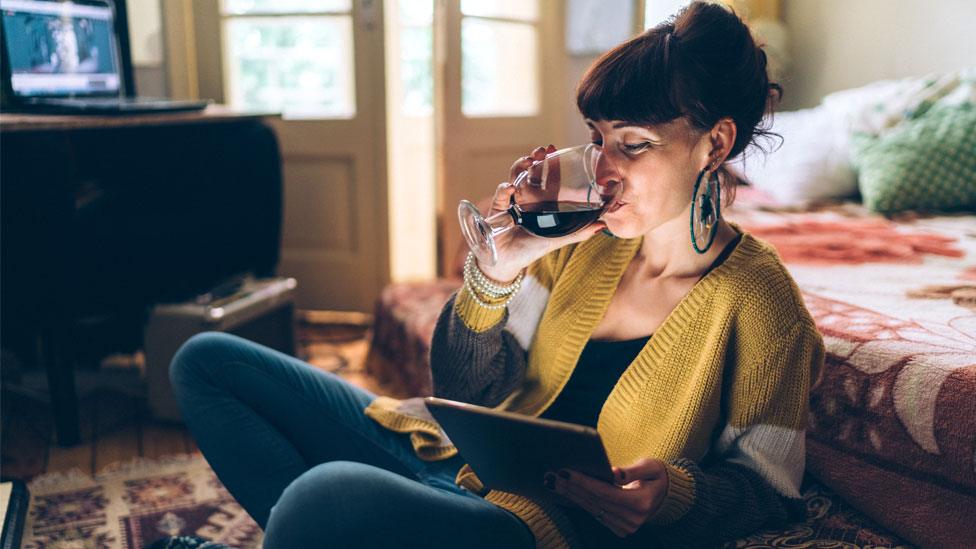Alcoholism in the time of coronavirus
- Published
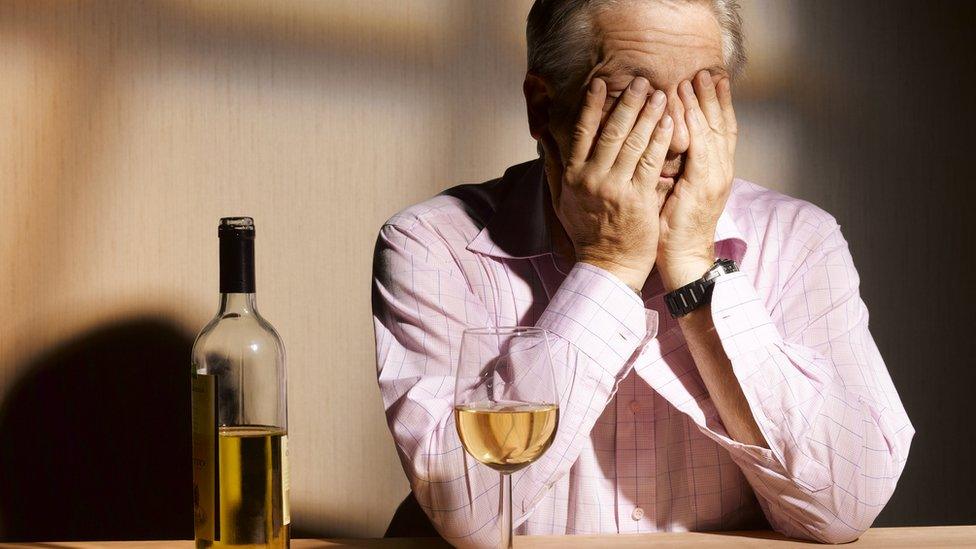
Alcohol abuse has increased during the coronavirus pandemic, according to the British Liver Trust, which has reported a 500% rise in calls to its helpline since lockdown began in March.
Three people share their stories of dealing with alcoholism during this period.
'I got a doctor's certificate so I could spend lockdown drinking'
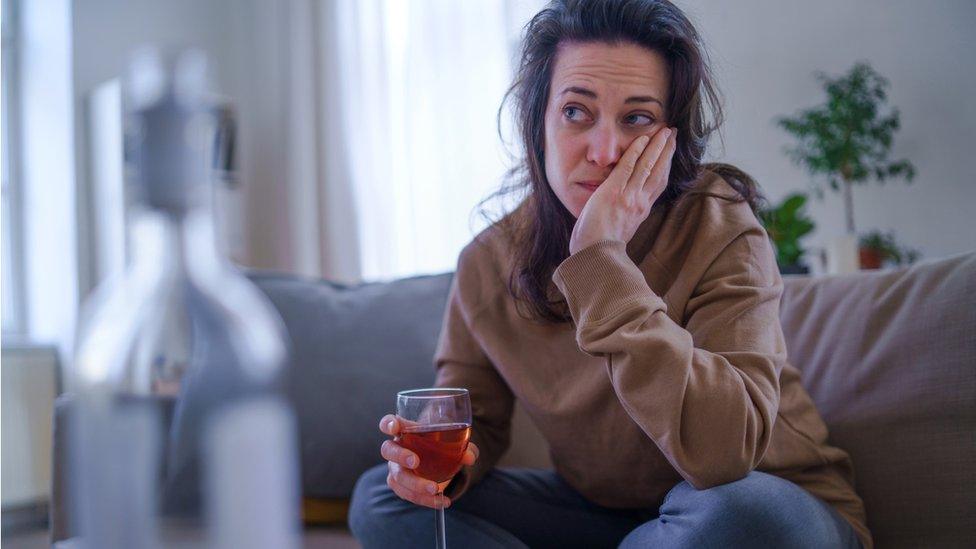
Tracy says she is an "amazing liar" when she is drinking. Photo posed by model
Tracy, from Chelmsford
With the lockdown, I thought we were all going to die, so I got drunk for a week.
I covered myself so I would not lose my job this time. I knew I was going to drink, so I phoned them and got a doctor's certificate. Covid was a great cover story: no-one was seeing you, you could do it over the phone.
As an alcoholic, I am very manipulative, and I am an amazing liar when I'm drinking.
I bought six bottles of wine, a bottle of vodka and a bottle of brandy. I just wanted to die. I really wanted to kill myself, I felt like I was a complete failure and there was no way forward.
Even when I was drinking, I was holding my nose - I didn't even like the taste of alcohol. I wanted to drink it quickly so I could get into oblivion.
I don't have any fallbacks. No-one can bail me out. I have nowhere to turn; I couldn't even go to the church next door.
Everything you know and rely on is gone. It was hard, but once you have acceptance with something, you can't change it, you just have to work with what you've got.
There is so much hope out there, so much life to live without alcohol and drugs. All I have left on my list is prison or death and I don't want those. I have lost employment because of it, I have lost my children, my home and my dignity.
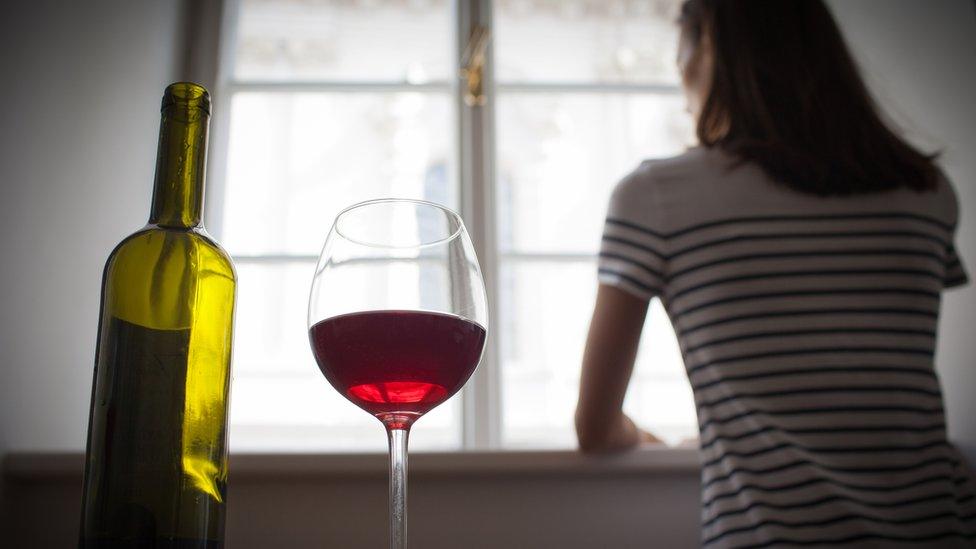
In lockdown, I only lost my mind for a couple of days.
The lockdown, it turned out, was the worst thing that could happen to anybody, especially for the alcoholics and addicts and people with mental health issues, as we isolate ourselves.
But I have got myself back on track. I am now two months sober. The depression is still there. If I don't pick up a drink, I can get through with it. I can deal with it. As soon as I pick up a drink, I am gone.
I am home a lot on my own and I have struggled mentally. I relapsed before but now I phone a friend and talk to people and read. Thank God they opened the library, that has been my saviour.
A few AA meetings have opened, but they are restricted to 20 people for health and safety. One of the only traditions they have, is that no-one will be turned away and they are going against this.
When I did relapse in the beginning, I had it in my head the way it was going that we were all going to die. It has come into perspective now and I have got myself back on track.
Tom Fox, a non-alcoholic Trustee for Alcoholics Anonymous Great Britain & English Speaking Continental Europe, told the BBC many AA groups moved online during lockdown. He said: "Once restrictions were lifted some groups have been able to meet again in Covid-secure venues, adhering to the guidelines laid out by Public Health England of 15 participant for mutual aid groups, and some meetings have gone hybrid enabling those not able to get out to still attend.
"AA would never turn a suffering alcoholic away: if all spaces in a meeting were taken a longer-term sober member would give up their seat. It is our primary purpose to stay sober and help the suffering alcoholic and to hold out the hand of AA to all those who need it."
'I isolated in my flat for two years'
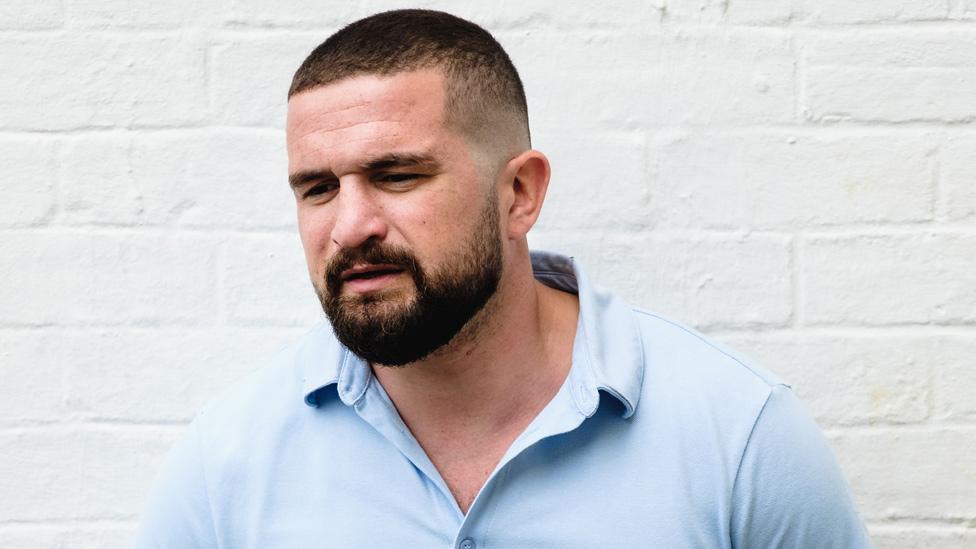
Joseph says he feels stronger after getting through lockdown
Joseph Harrington, from Uttlesford in Essex
My experiences of alcoholism and drug addiction started from a very young age. It became a problem in my late teens. I would wake up every morning or in the night, already withdrawing from the alcohol.
I was constantly being sick, I was itching, having fevers, hallucinating, and then I would have this feeling of bright lights around my vision; then, before I know it, I would be out. When I was drinking, my whole body would be fitting and I would be half conscious and I would be there paralysed.
By the age of 29 I had residential treatment and was diagnosed with a condition called cerebellar ataxia, which is a scarring at the back of the brain, which effects the cerebral cortex - the part that sends all the messages from your brain down your spine, into the rest of your body. That was causing me to have seizures and I couldn't walk.
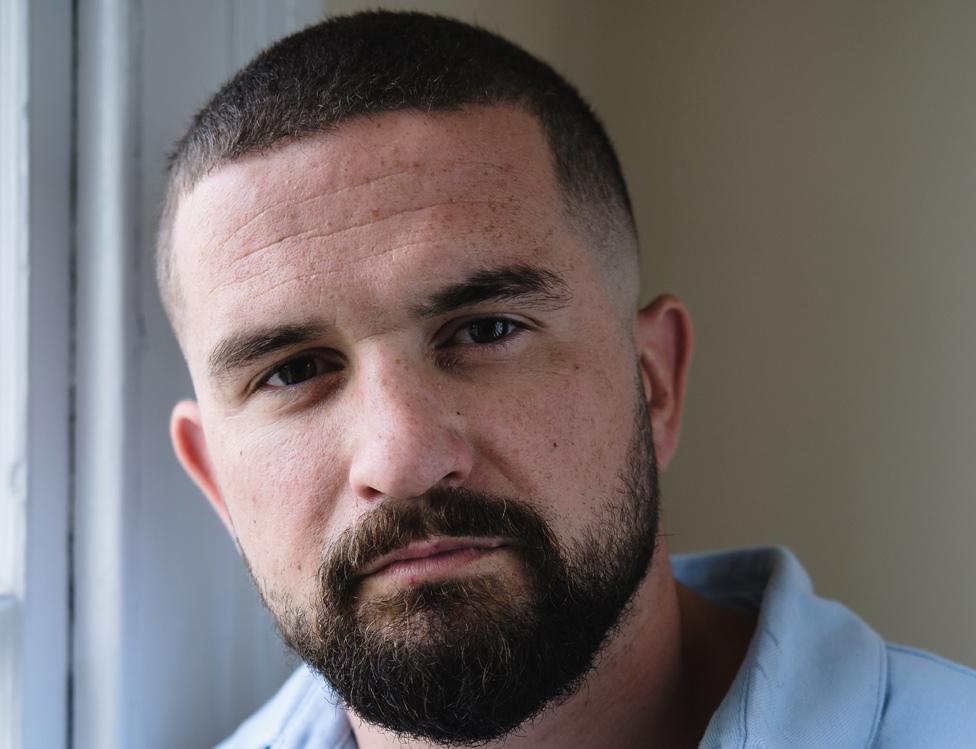
"A lot of people are crying out to get back to the alcohol support meetings"
I was 31 and I was in a wheelchair. The damage I have caused is permanent. I am in chronic pain and the nerve endings have been severed.
It is like I have been dripped in lava and been left to dry; there is a constant burning across the whole of my body.
It was very isolating living on my own during lockdown. I found it very difficult. My mental health wasn't great. I just felt very isolated and trapped and lonely.
I couldn't get out the house and there wasn't a lot of support when it first happened. There were no [support] meetings, the church had been closed. It was quite an emotional time for me. Not seeing people face to face was quite a daunting experience to start off.
With addiction you shouldn't isolate, the cure is connection, and when you are disconnected by it all, it is hard.
I know a lot of people are crying out to get back to the alcohol support meetings. Only when I feel it's safe and ready to go back, then I will go back. For now, it is just one day at a time.
'It's like looking after a toddler'
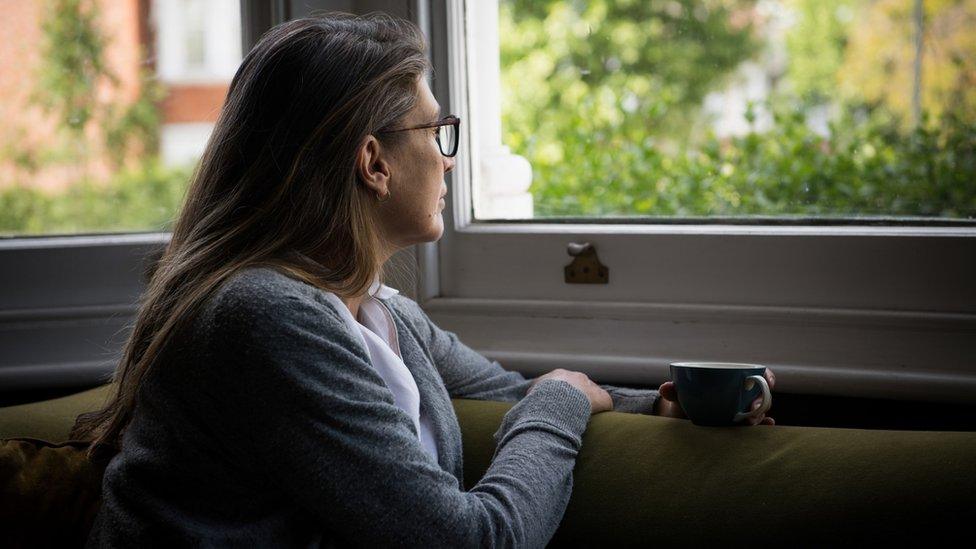
Susan says she distances herself when her partner is drinking. Photo posed by model
Susan, from Basildon
We have been together for 19 years and I know he is a good man. He wouldn't choose to do this if it was a choice.
When he drinks, it's literally Jekyll and Hyde. When sober, he's a very kind, generous, loyal, funny, loving man, but as soon as he picks up a drink, his personality is the absolute opposite.
He's never physically violent towards me, but he can be mentally very abusive, and very destructive of his surroundings.
He will keep drinking until he actually starts to vomit, at which point he can't obviously drink. The drinking ramps up from perhaps a bottle of wine a day to six bottles of wine a day, if not more, and then we end up with paramedics coming and he goes to hospital.
When he comes home from hospital, he doesn't drink and this lasts for about a month and a half. Then he starts drinking again.
When he passes out, I put him in the recovery position. I make sure he is not near any sharp objects, that kind of thing. It is as basic as looking after a toddler, really, when he is entirely inebriated.
We had an incident during lockdown when the police came out. He was on the phone to the ambulance operator and he handed the phone to me because he was so drunk he couldn't get his words out. The operator could hear him shouting abuse in the background and she sent the police.
Of course, the opening of the pubs made it worse, now they are out drinking. Anyone who has had too much to drink won't remember social distancing.
I know I have no control over his drinking, I have accepted in my heart and head there is nothing I can do.
For me, it is my choice. Just because he is ill, doesn't mean I should leave. I will take the moments when he is sober, as he is the love of my life.
As told to Vicky Carter
Some names have been changed
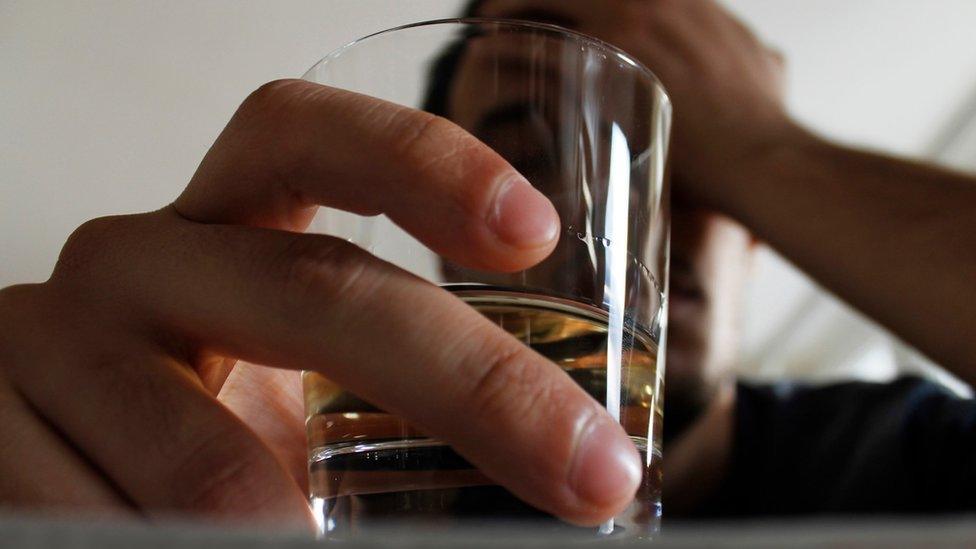
Laura Bunt, from the drug alcohol and mental health charity We Are With You, external, said referrals for treatment in April were down 72% compared to January, yet alcohol sales had increased.
"Social isolation and a lack of a human connection is a big factor behind why some people turn to alcohol as a coping mechanism, so clearly the pandemic continues to be really tough for many people," she said.
She added that four out of five people with an alcohol issue do not access support even "at the best of times".
The charity offers support over the phone, by text and email, along with a weekly group video call.
"A lot of people are accessing our services for the first time as a result of being concerned about their drinking during lockdown," added Ms Bunt.
"If anyone is concerned about their own or a loved one's drinking, we are here to help. We want people to know that you don't need to go to your GP first."

Information and support
If you, or someone you know, has been affected by alcohol addiction, some of these organisations may be able to help.
- Published15 September 2020
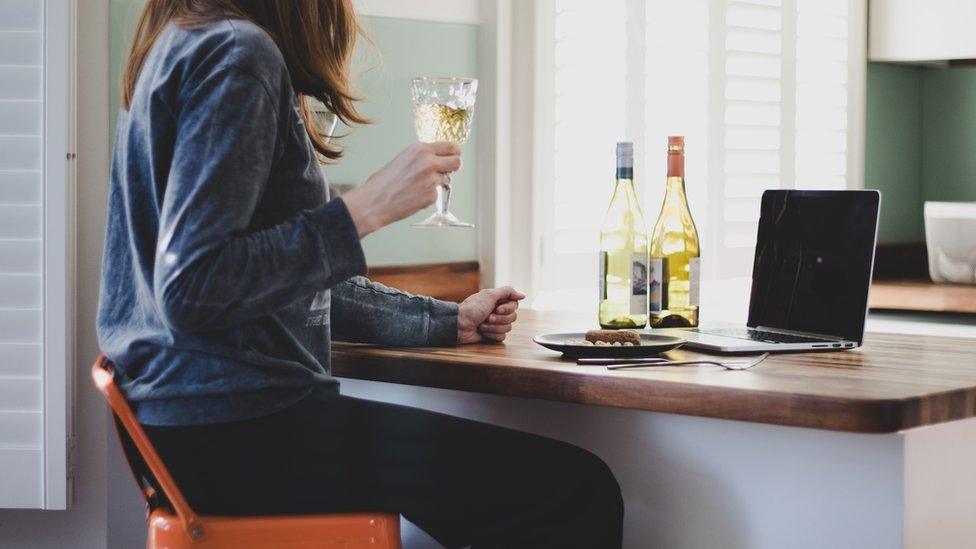
- Published23 August 2020
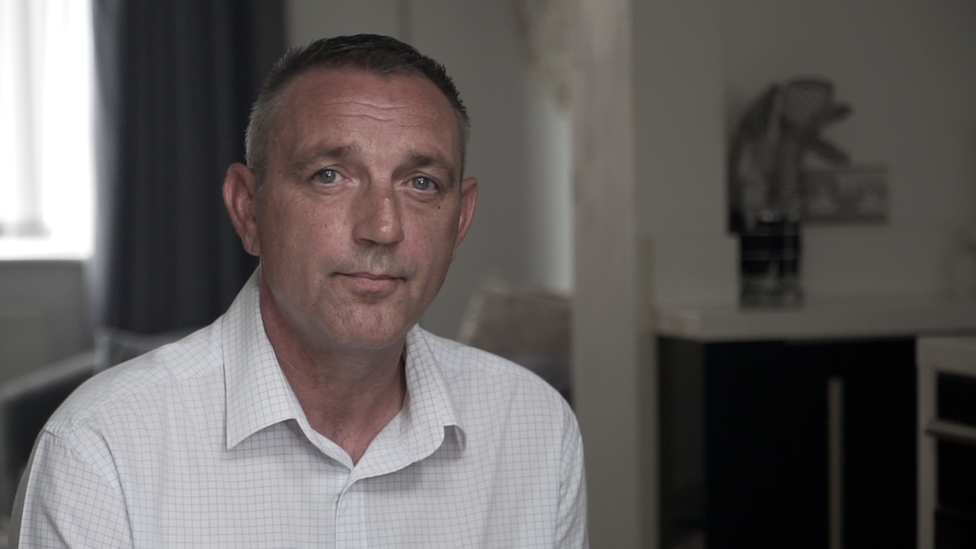
- Published5 June 2020
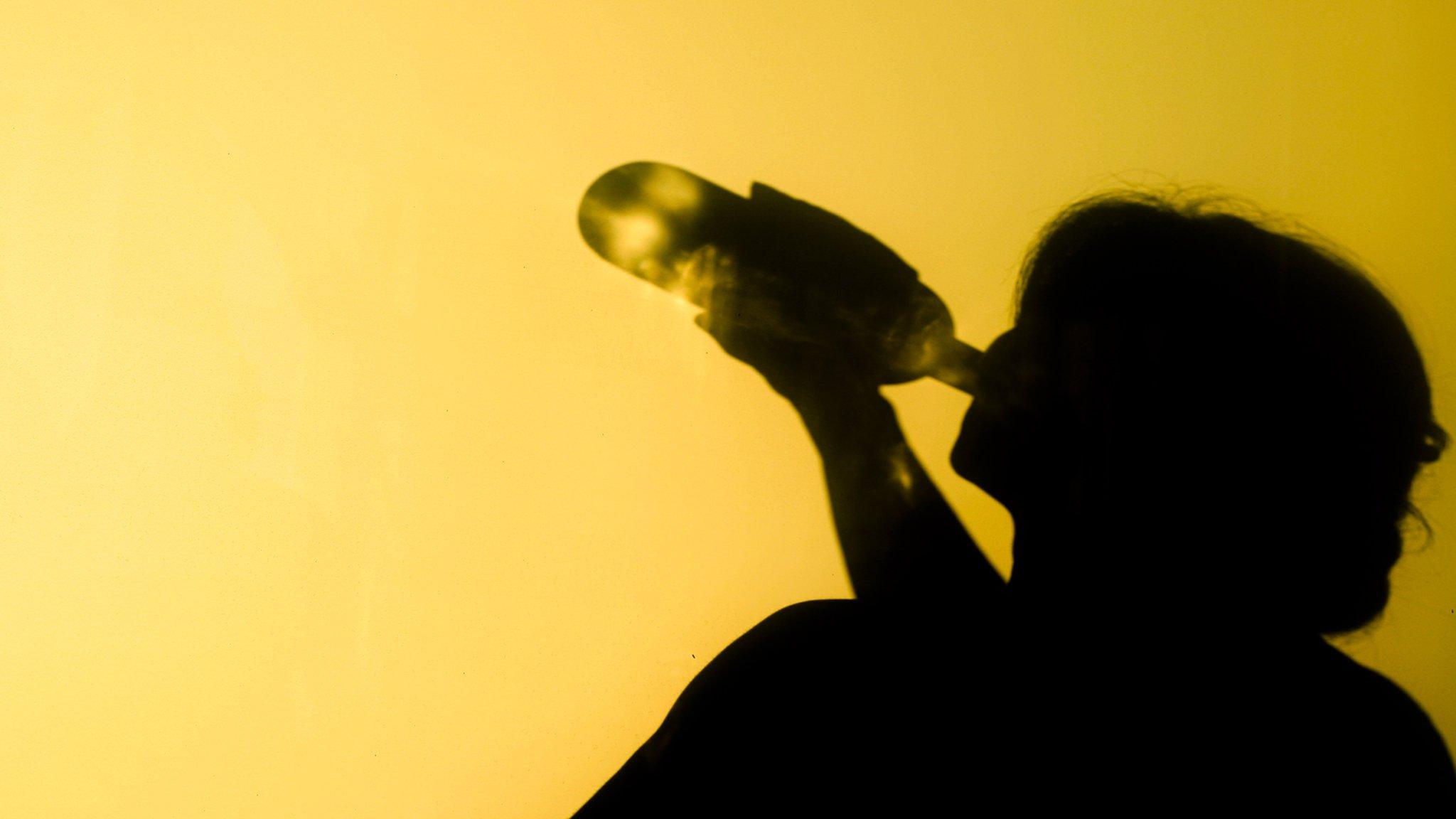
- Published21 May 2020
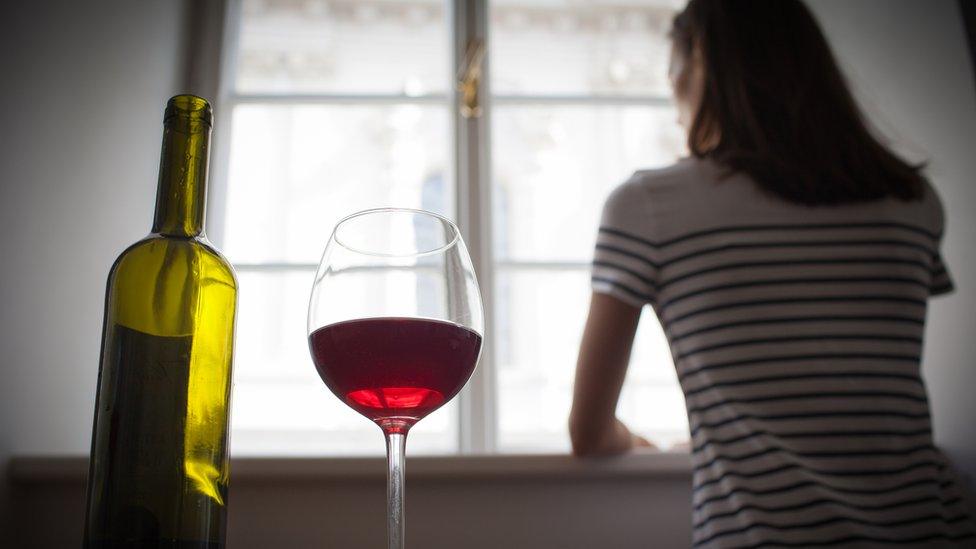
- Published18 April 2020
